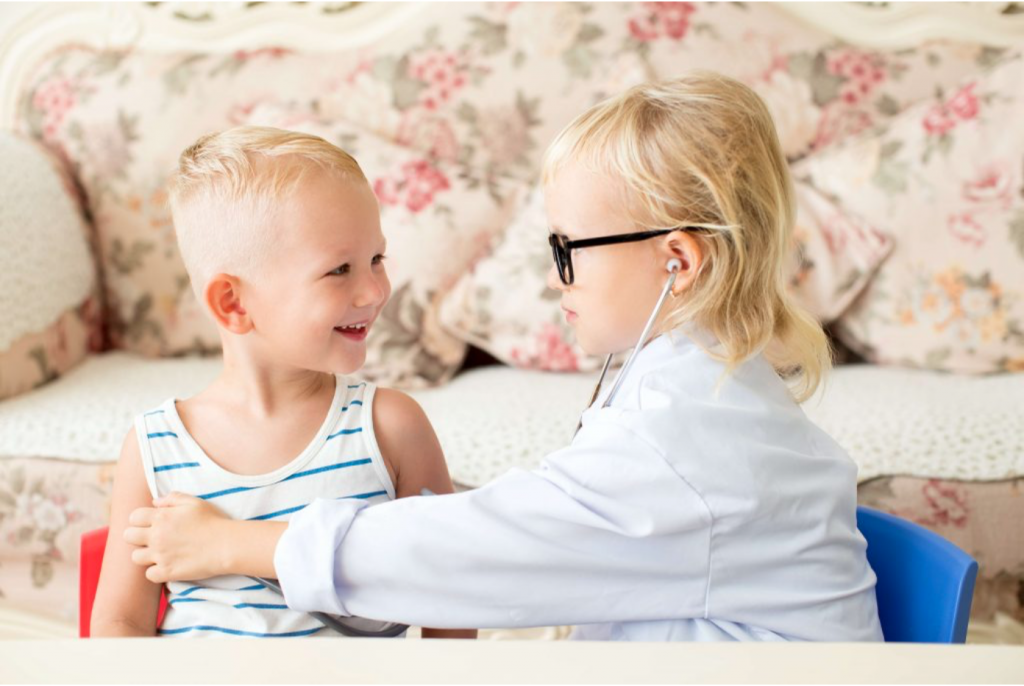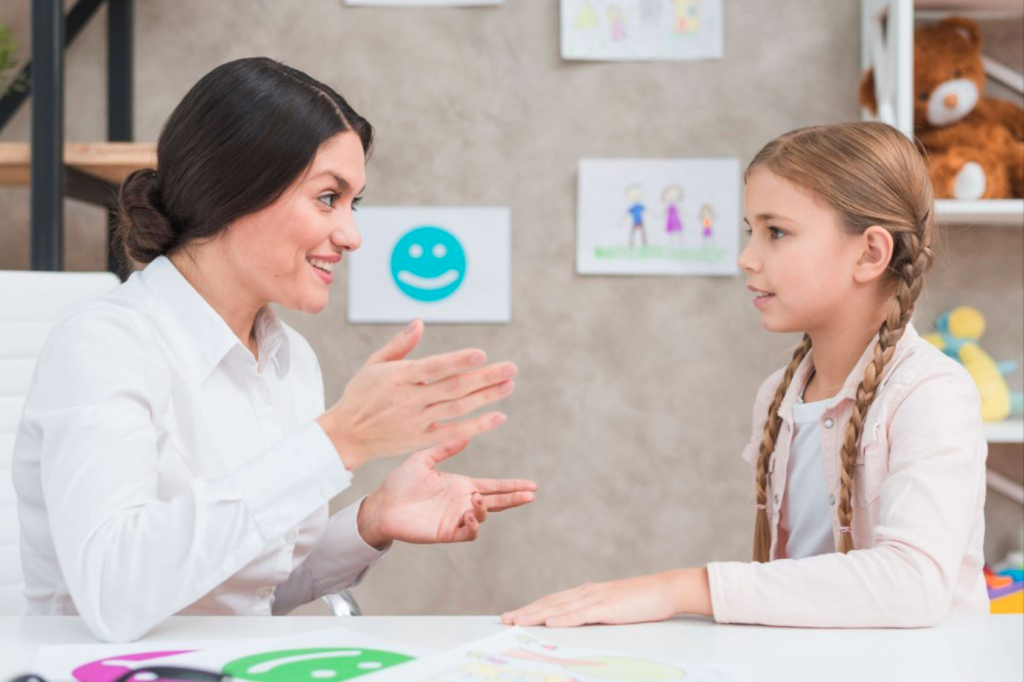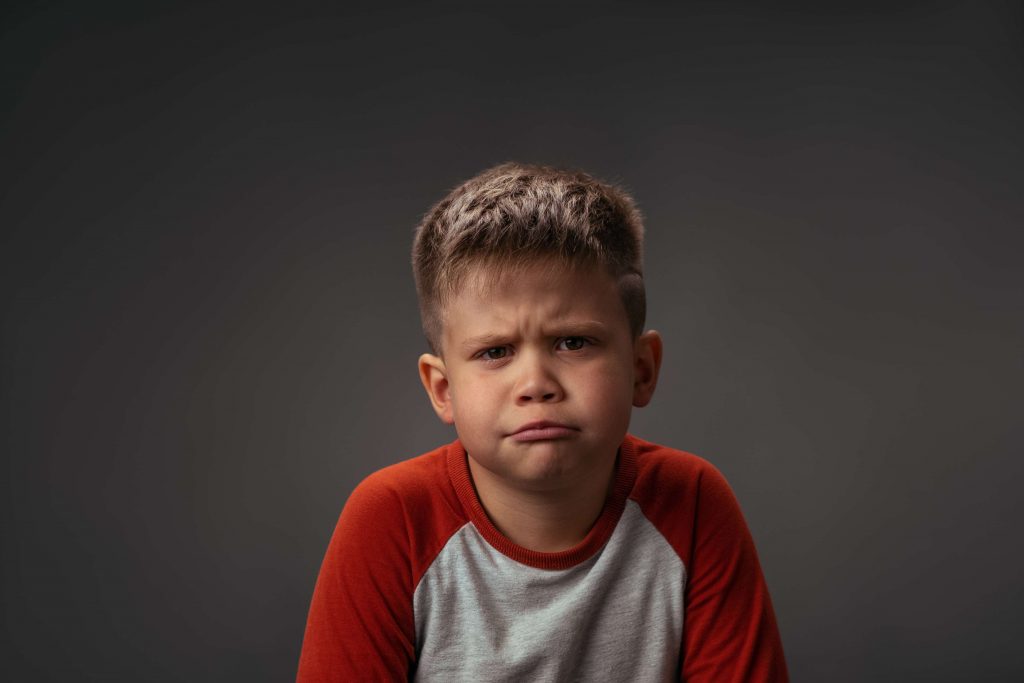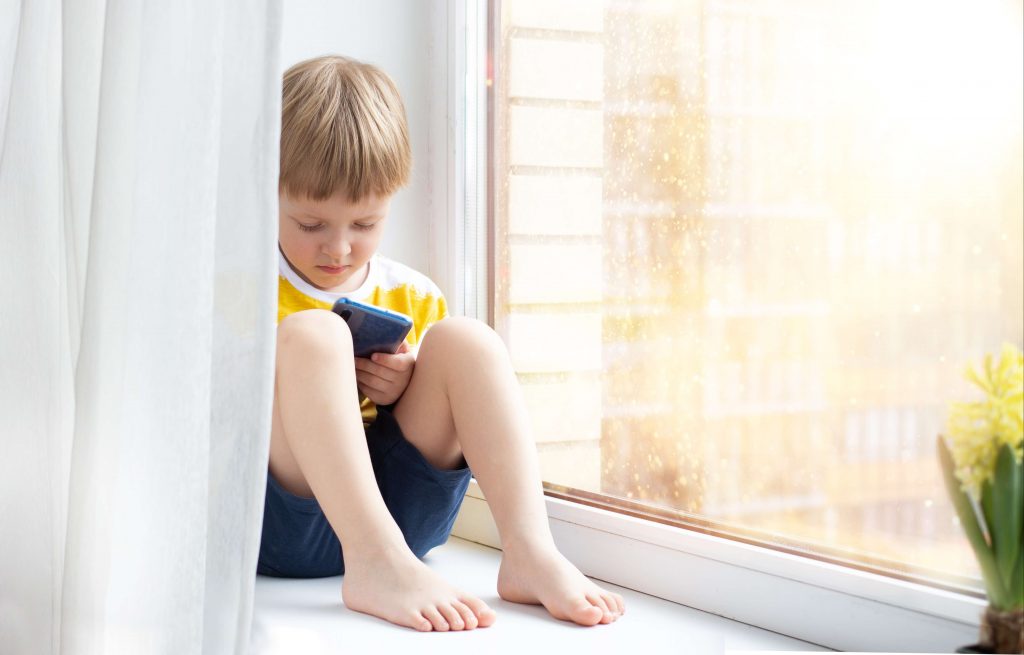Shocked, panicked, and worried that their kids have sexual issues at a young age,… are how many parents react when finding out their kids playing doctor. Are they overreacting or children’s acts of touching their friends’ private parts is just merely the result of curiosity? Read this article to find out now!
Why are children “playing doctor”?
“Playing doctor” usually happens when a child is between the ages of 3 and 6 years old. The reason the children do this is curiosity. This happens when he notices a difference between men and women in appearance, for example, his dad can have short hair, have a beard and his mom can have long hair or wear a skirt.
But what if mom keeps her hair short and dad has long hair?
At that time, children will be curious and think if there is any other way to distinguish men and women. When playing with friends, it is quite natural and easy to understand if they try to see if their friend is different. Kids see their friends’ genitals and vice versa, show them their genitals. In other words:
“playing doctor” is an age-appropriate behavior that many children will do.


Should you be worried?
This is mostly normal age appropriateness for children to do. But, sometimes it’s more problematic for children to do it for other reasons. How do parents know when “playing doctor” is a normal thing that develops within age and when not?
Normal behavior is defined as when a child wants to see his friend’s private parts due to curiosity, including:
- Children playing with friends about 2 years old difference
- Children will play with someone they know
- Both agreed to play, without coercion
- The game is spontaneous
- Games don’t happen often
- Children can keep it a secret because they predict a parent might punish them.
You may also find this helpful:
What to do when catching your child “playing doctor”?
- Take a deep breath. Don’t panic and don’t get angry because your kids are just curious about this.
- You need to distract your child by suggesting another activity, such as inviting them to go outside and eat fried chicken. Try to keep your usual tone of voice, as if nothing happened. At this point, keep your kid in your sight.
- When the other child goes home, talk to your child about what happened, and what parents had seen. By then, you will have time to calm down and be more ready to talk with your child.


What should be said to the parent of the other child?
Speaking or not is up to you.
If you decide to share it with another parent, you may consider mentioning the incident cleverly. For example: “The kids had a lot of fun playing today. It’s a playing doctor game and I saw them examine and touch touch private parts of each other. However, I was quite shocked to see them playing that.“
Not all parents understand that “playing doctor” is a normal age-appropriate activity your child will do, so you also need to let other parents know that all are normal. However, both parents may need to closely monitor the child during the next play sessions, to better understand whether their “playing doctor game” is healthy or not.


Be open and honest. Do not try to blame your child, other people and other parents or be over-worried because the child may be just curious and that is extremely evident in the child’s development. Excessive anxiety can even affect you and others’ parents’ relationships.
How should you talk to your child?
Talk with them about what happened, what you saw. Keep the atmosphere friendly, don’t make children feel pressured or scared about what they have done. You can start with a question: “I saw you really having fun today with your friend, what kind of game are you two playing?”
Try to find out if it is healthy (voluntary, spontaneous, infrequent) and whether your child is negatively affected by the game. Children will often open up and easily share their thoughts if they know you are not going to scold them.


Let your kid know they may be curious about touching private parts of friends and their parents understand their curiosity, but remind them: “You shouldn’t touch other people’s private parts or let them touch that part of yours, it’s just for parents”.
Parents can learn more about this subject of gender through books, like Tess Rowley’s Everyone’s Got A Bottom, or Louise Spilsbury’s It’s My Body: A Book about Body Privacy for Young Children. You also talked about the gender difference in your family. Or buy a doll to explain gender to the child.
The next time your child has friends over to play, try to notice them by opening the bedroom door, encouraging them to play in the living room. However, don’t make the playing atmosphere unnatural and awkward by keeping staring at them.


Conclusion
At the age of 4-6, your baby can become curious about gender and start showing others his genitals. It is normal for the playing doctor to be played between children of the same sex and children of the opposite sex. It is common for children to touch, hug and kiss the genitals, which is usually accompanied by excitement and giggles.
To you, this activity may not seem age-appropriate for your child. But for your child, it is an inherently natural way of learning about life, especially about gender differences. It is completely normal for children to “playing doctor” – if their behavior comes from curiosity, both voluntarily, spontaneously and infrequently.


However, when your children enter primary school, as well as in the unpredictability of Covid-19, online learning seems obvious. Then, also out of curiosity, they can search for information about this on the Internet, and it is more likely that they will access harmful content like porn.
With millions of harmful sites creeping into the Internet every hour, every minute, even if your kids are not curious, they are still at an extremely high risk of accessing them, which leads to porn addiction, poor academic performance, or imitation of dangerous behaviors.
No parent wants that to happen!
That’s why, to keep your children safe more effectively, you should consider using CyberPurify Kids – a content filtering tool to filter 15 types of harmful content online such as:
- Pornography
- Horror content like gore, accidents, ghosts, violence, murder, terrorism, etc
- Content about stimulants, addictive substances such as alcohol, beer, marijuana, drugs, etc
- Content with aggressive elements, hurting others like Hate speech
This free tool can help you minimize your child’s access to harmful content, ensuring a healthy online environment but at same time, still respecting their privacy rights.
Try and you might love this:















